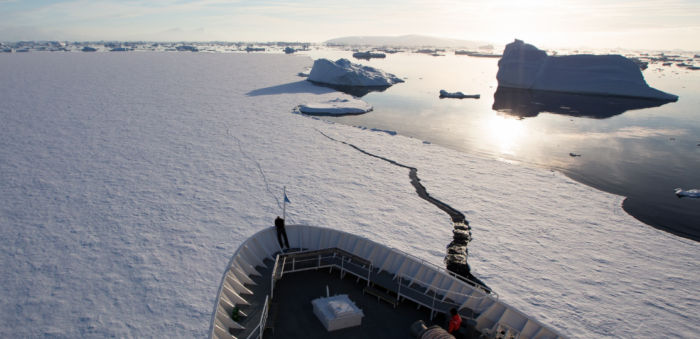As the MEPC 73 starts today in London, the Clean Arctic Alliance calls the member states to reaffirm their commitment towards a ban on the use and carriage of polluting heavy fuel oil from Arctic shipping from 2021.
At MEPC 72 most of IMO members agreed in principle to this ban. Heavy fuel oil (HFO) is back on the agenda for MEPC 73, which will examine an impact assessment methodology, which establishes the work to be done to reduce the risks associated with the “use and carriage of heavy fuel oil as fuel by ships in Arctic waters”.
MEPC72’s proposal to ban HFO as shipping fuel from Arctic waters was co-sponsored by Finland, Germany, Iceland, Netherlands, New Zealand, Norway, Sweden and the US.
The proposal, along with a proposal to assess the impact of such a ban on Arctic communities from Canada, was supported by Australia, Belgium, Czech Republic, Denmark, Estonia, France, Ireland, Japan, the League of Arab States, Poland, Portugal, Spain, Switzerland, and the UK. Denmark also supported the ban, while Greenland announced that it would add its support. In addition, the Inuit of Alaska, Canada, Greenland and Chukotka called to end the use of HFO in the Arctic.
For its part,the EU has been offering support for a HFO ban, including as part of an EU Parliament resolution in the context of the 2030 Sustainable Development Goals.
Canada and Russia have also both supported IMO work to consider ways to mitigate the risks associated with HFO, but Canada has yet to take a position on a ban. As for Russia, it has said that a ban on use of HFO in the Arctic would its “last resort”. However, Russian President Vladimir Putin and Finnish President Sauli Niinisto made a joint statement earlier this year on the need to move to cleaner ships’ fuels, such as LNG in the Arctic.

































































